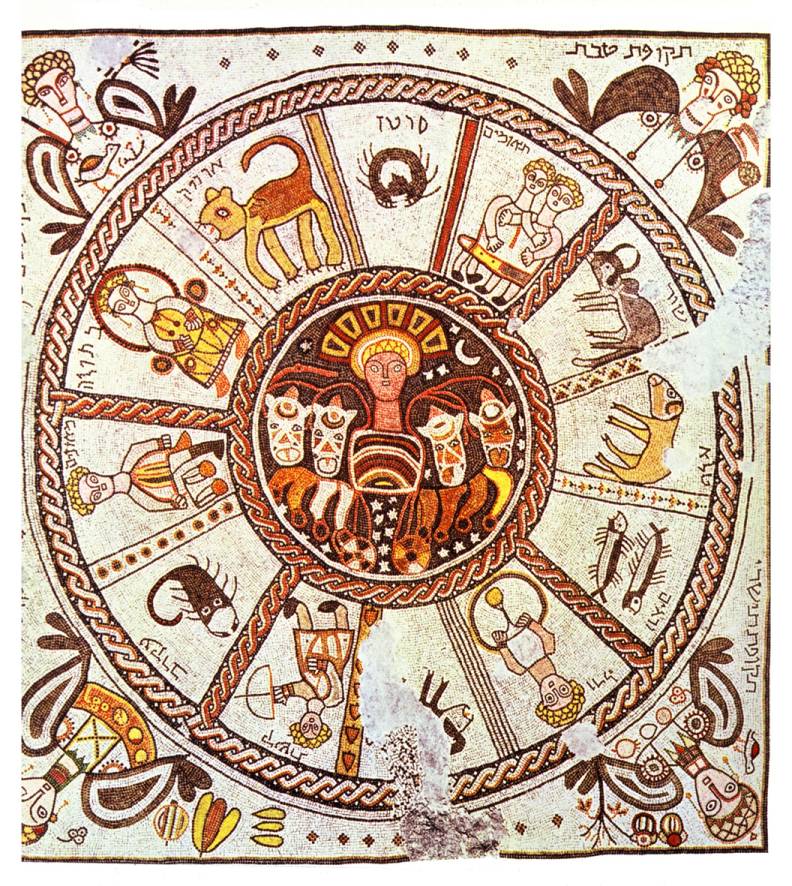|
Mazel Tov
"Mazel tov" () or "mazal tov" (; literal translation, lit. "good fortune") is a Jews, Jewish phrase used to express congratulations for a happy and significant occasion or event. Etymology and pronunciation The word ''mazel'' comes from the Biblical Hebrew , meaning "constellation" or (in Mishnaic Hebrew) "astrological sign" and may be related to the root meaning "to flow down". The phrase ''mazel tov'' first appears in Geonic Hebrew, where it means "positive astrological sign" or simply "good fortune." The Medieval Hebrew chant "A good sign, a good omen! Let it happen for us and for all Israel" was used to congratulate, and the phrase itself acquired a congratulatory usage in Yiddish and Hebrew by the early 19th century and was later incorporated into Modern Hebrew. The Yiddish and Ashkenazi Hebrew, Ashkenazic pronunciation of ''mazel'' has the stress on the first syllable while the Modern Hebrew word has the stress on the last syllable. Mazel-tov is also used as a per ... [...More Info...] [...Related Items...] OR: [Wikipedia] [Google] [Baidu] |
Mazel Tov!
Mazel is a surname. Notable people with the surname include: * Eugène Mazel (1828–1890), French amateur botanist * Hélène Robert-Mazel (active 1832-1857), French composer, pianist, singer and teacher * Ilya Mazel (aka Ruvim Mazel, 1890–1967), Soviet painter * Isaak Mazel (1911–1945), Soviet chess master * Judy Mazel (1943–2007), American weight loss advocate and author of ''The Beverly Hills Diet'' * Leo Mazel (1907–2000), Soviet-Russian musicologist * Maurice Mazel, prominent Chicago surgeon who founded Edgewater Hospital * Olivier Mazel (1858–1940), French Army general during World War I * Zvi Mazel (born 1939), Israeli diplomat Mazel can also refer to: * Luc Maezelle (born 1931), Belgian comic artist See also * Mazel Group Engineering, a Barcelona based design studio specialising in concept cars and engineering solutions * Mazel tov * Maazel * Mazenzele Mazenzele is a Flanders, Flemish village in the Belgi ..., Flemish village in the Belgian province Flemish- ... [...More Info...] [...Related Items...] OR: [Wikipedia] [Google] [Baidu] |
Dutch Language
Dutch ( ) is a West Germanic languages, West Germanic language of the Indo-European language family, spoken by about 25 million people as a first language and 5 million as a second language and is the List of languages by total number of speakers, third most spoken Germanic language. In Europe, Dutch is the native language of most of the population of the Netherlands and Flanders (which includes 60% of the population of Belgium). "1% of the EU population claims to speak Dutch well enough in order to have a conversation." (page 153). Dutch was one of the official languages of South Africa until 1925, when it was replaced by Afrikaans, a separate but partially Mutual intelligibility, mutually intelligible daughter language of Dutch. Afrikaans, depending on the definition used, may be considered a sister language, spoken, to some degree, by at least 16 million people, mainly in South Africa and Namibia, and evolving from Cape Dutch dialects. In South America, Dutch is the native l ... [...More Info...] [...Related Items...] OR: [Wikipedia] [Google] [Baidu] |
English Phrases
English usually refers to: * English language * English people English may also refer to: Culture, language and peoples * ''English'', an adjective for something of, from, or related to England * ''English'', an Amish term for non-Amish, regardless of ethnicity * English studies, the study of English language and literature Media * ''English'' (2013 film), a Malayalam-language film * ''English'' (novel), a Chinese book by Wang Gang ** ''English'' (2018 film), a Chinese adaptation * ''The English'' (TV series), a 2022 Western-genre miniseries * ''English'' (play), a 2022 play by Sanaz Toossi People and fictional characters * English (surname), a list of people and fictional characters * English Fisher (1928–2011), American boxing coach * English Gardner (born 1992), American track and field sprinter * English McConnell (1882–1928), Irish footballer * Aiden English, a ring name of Matthew Rehwoldt (born 1987), American former professional wrestle ... [...More Info...] [...Related Items...] OR: [Wikipedia] [Google] [Baidu] |
Chabad
Chabad, also known as Lubavitch, Habad and Chabad-Lubavitch (; ; ), is a dynasty in Hasidic Judaism. Belonging to the Haredi (ultra-Orthodox) branch of Orthodox Judaism, it is one of the world's best-known Hasidic movements, as well as one of the largest Jewish religious organizations. Unlike most Haredi groups, which are self-segregating, Chabad mainly operates in the wider world and caters to nonobservant Jews. Founded in 1775 by Rabbi Shneur Zalman of Liadi (1745–1812) in the city of Liozno in the Russian Empire, the name "Chabad" () is an acronym formed from the three Hebrew words— Chokmah, Binah, Da'at— for the first three sefirot of the kabbalistic Tree of Life after Keter: , "Wisdom, Understanding, and Knowledge"—which represent the intellectual and kabbalistic underpinnings of the movement. The name Lubavitch derives from the town in which the now-dominant line of leaders resided from 1813 to 1915. Other, non-Lubavitch scions of Chabad either disappear ... [...More Info...] [...Related Items...] OR: [Wikipedia] [Google] [Baidu] |
Siman Tov
SIMÁN is a department store from El Salvador, has 100 years of operation and currently has regionalized along Central America. History SIMÁN was founded on December 8, 1921, by Don J. J. Simán, of Palestinian origin, when he decided to open a small shop in the commercial area of the San Salvador downtown. Its first name was "JOSE J. SIMÁN ", then when the children integrated into the business, its name changed to" JOSE J. SIMÁN e HIJOS. "Later it was incorporated as a limited company under the name: "ALMACENES SIMÁN S.A." For the 1960s, the store moved to larger premises in the Salvadoran capital downtown, later becoming a limited company with variable capital so that now the name is "ALMACENES SIMÁN S.A. de C.V. "(ALSISA) Its construction began in 1967 and then became in 1970 in the first department store in El Salvador and the largest in Central America. The store transferred its operations to the new branch in the Plaza Mundo shopping mall in September 2010 and it is ... [...More Info...] [...Related Items...] OR: [Wikipedia] [Google] [Baidu] |
List Of English Words Of Yiddish Origin
This is a list of words that have entered the English language from the Yiddish language, many of them by way of American English. There are differing approaches to the romanization of Yiddish orthography (which uses the Hebrew alphabet); thus, the spelling of some of the words in this list may be variable (for example, is a variant of , and , ). Background Yiddish is a Germanic language, originally spoken by Jews in Central and later Eastern Europe, written in the Hebrew alphabet, and containing a substantial substratum of Hebrew words as well as numerous loans from Slavic languages. For that reason, some of the words listed originated in Hebrew or Slavic languages, but have entered English via Yiddish. Yiddish is closely related to modern German, and many Yiddish words have German cognates; in some cases it is difficult to tell whether a particular word was borrowed from Yiddish or from German. Yiddish is written in the Hebrew alphabet, and Yiddish words may be translitera ... [...More Info...] [...Related Items...] OR: [Wikipedia] [Google] [Baidu] |
Jewish Greetings
There are several Jewish and Hebrew greetings, farewells, and phrases that are used in Judaism, and in Jewish and Hebrew-speaking communities around the world. Even outside Israel, Hebrew is an important part of Jewish life. Many Jews, even if they do not speak Hebrew fluently, will know several of these greetings—most are Hebrew, and among Ashkenazim, some are Yiddish. Shabbat For Shabbat, there are several ways to greet people in a variety of languages, including Hebrew, Yiddish, and Judeo-Spanish. Holidays Different expressions are used for the Three Pilgrimage Festivals (Passover, Shavuot, and Sukkot) and the other Jewish holidays. Greetings and farewells There are several greetings and good-byes used in Hebrew to say hello and farewell to someone. Phrases These are Hebrew phrases used in Jewish communities both inside and outside of Israel. See also *Honorifics in Judaism *Honorifics for the dead in Judaism Among the honorifics in Judaism, there are seve ... [...More Info...] [...Related Items...] OR: [Wikipedia] [Google] [Baidu] |
Jewish Astrology
Astrology in Jewish antiquity () is the belief that celestial bodies can influence the affairs of individuals and of entire nations upon the earth. This involves the study of the celestial bodies' respective energies based on recurring patterns that change by the hour, by the week, month, year or by several years (time categories). In each of these time categories one of the seven planetary spheres, or what are known as the seven classical planets: the Sun, Venus, Mercury (planet), Mercury, the Moon, Saturn, Jupiter, or Mars, along with the month's current Zodiac constellation, come into play and influence the sublunary world. At times, it involves a complex combination of several of these factors working together. In Judaism this belief is expressed by the biblical affirmation: "Do you know the laws of heaven / Or impose its authority on earth?" (Job 38:33), from which statement the Sages of Israel have inferred, "There is no single herb below without its corresponding star above ... [...More Info...] [...Related Items...] OR: [Wikipedia] [Google] [Baidu] |
Jewish Wedding
A Jewish wedding is a wedding ceremony that follows Halakha, Jewish laws and Jewish culture, traditions. While wedding ceremonies vary, common features of a Jewish wedding include a ''ketubah'' (marriage contract) that is signed by two witnesses, a ''chuppah'' or ''huppah'' (wedding canopy), a wedding ring, ring owned by the groom that is given to the bride under the canopy, and the breaking of a glass. Technically, the Jewish wedding process has two distinct stages. The first, ''erusin, kiddushin'' (Hebrew for "betrothal"; sanctification or dedication, also called ''erusin'') and ''nissuin'' (marriage), is when the couple start their life together. It is at the first stage (kiddushin) when the woman becomes prohibited to all other men, requiring a ''Get (divorce document), get'' (religious divorce) to dissolve it, while the second stage permits the couple to each other. The ceremony that accomplishes ''nissuin'' is also known as ''chuppah''.Made in Heaven, A Jewish Wedding Guid ... [...More Info...] [...Related Items...] OR: [Wikipedia] [Google] [Baidu] |
Bar And Bat Mitzvah
A ''bar mitzvah'' () or ''bat mitzvah'' () is a coming of age ritual in Judaism. According to Jewish law, before children reach a certain age, the parents are responsible for their child's actions. Once Jewish children reach that age, they are said to "become" ''b'nai mitzvah'', at which point they begin to be held accountable for their own actions. Traditionally, the father of a ''bar'' or ''bat mitzvah'' offers thanks to God that he is no longer punished for his child's sins. In Orthodox communities, boys become ''bar mitzvah'' at 13 and girls become ''bat mitzvah'' at 12. In most Reform, Reconstructionist, and Conservative communities, the milestone is 13 regardless of gender. After this point, children are also held responsible for knowing Jewish ritual law, tradition, and ethics, and are able to participate in all areas of Jewish community life to the same extent as adults. In some Jewish communities, men's and women's roles differ in certain respects. For example, in ... [...More Info...] [...Related Items...] OR: [Wikipedia] [Google] [Baidu] |
Jewish Diaspora
The Jewish diaspora ( ), alternatively the dispersion ( ) or the exile ( ; ), consists of Jews who reside outside of the Land of Israel. Historically, it refers to the expansive scattering of the Israelites out of their homeland in the Southern Levant and their subsequent settlement in other parts of the world, which gave rise to the various Jewish communities. In the Hebrew Bible, the term () denotes the fate of the Twelve Tribes of Israel over the course of two major exilic events in ancient Israel and Judah: the Assyrian captivity, which occurred after the Kingdom of Israel (Samaria), Kingdom of Israel was conquered by the Neo-Assyrian Empire in the 8th century BCE; and the Babylonian captivity, which occurred after the Kingdom of Judah was conquered by the Neo-Babylonian Empire in the 6th century BCE. While those who were taken from Israel dispersed as the Ten Lost Tribes, those who were taken from Judah—consisting of the Tribe of Judah and the Tribe of Benjamin—becam ... [...More Info...] [...Related Items...] OR: [Wikipedia] [Google] [Baidu] |







